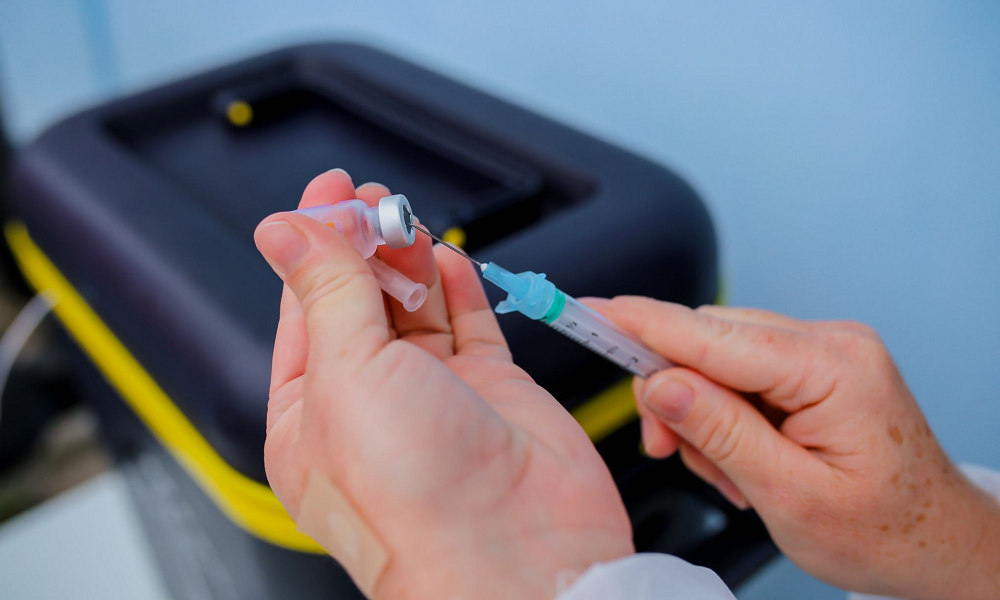Health
HHS ends funding for mRNA vaccines targeting respiratory viruses

The U.S. Department of Health and Human Services (HHS) announced it is terminating 22 federal contracts related to mRNA vaccine development for respiratory viruses, including COVID-19 and influenza, following an internal review.
The cancellations, which total nearly $500 million in funding, are part of what HHS described as a comprehensive reassessment of mRNA vaccine performance against upper respiratory infections.
HHS Secretary Robert F. Kennedy, Jr. said in a statement that the decision was made after consulting with scientists at the National Institutes of Health and the Food and Drug Administration, and is being implemented through the Biomedical Advanced Research and Development Authority (BARDA).
“BARDA is terminating 22 mRNA vaccine development investments because the data show these vaccines fail to protect effectively against upper respiratory infections like COVID and flu,” Kennedy said. “We’re shifting that funding toward safer, broader vaccine platforms that remain effective even as viruses mutate.”
Kennedy claimed that mRNA vaccines often target a narrow portion of viral proteins, making them vulnerable to mutations. This, he said, can reduce effectiveness over time and potentially contribute to continued viral evolution.
Among the canceled projects are BARDA’s award to Moderna and the University of Texas Medical Branch for an mRNA-based H5N1 vaccine, as well as terminated contracts with Emory University and Tiba Biotech.
Several other proposals and pre-award solicitations from companies including Pfizer, Sanofi Pasteur, and CSL Seqirus have also been rejected or de-scoped. Some final-stage contracts, such as those with Arcturus and Amplitude, will be allowed to continue to preserve prior taxpayer investment, according to HHS.
In place of mRNA vaccine development, Kennedy said BARDA will prioritize platforms with broader immunity and more robust safety records, such as whole-virus vaccines and novel delivery methods that retain effectiveness as viruses mutate.
“HHS supports safe, effective vaccines for every American who wants them,” Kennedy said. “That’s why we are moving beyond the limitations of mRNA for respiratory viruses and investing in better solutions.”

-

 World6 days ago
World6 days agoEthiopian volcano erupts for first time in thousands of years
-

 Legal3 days ago
Legal3 days agoUtah Amber Alert: Jessika Francisco abducted by sex offender in Ogden
-

 Legal1 week ago
Legal1 week agoWoman in critical condition after being set on fire on Chicago train
-

 US News2 days ago
US News2 days agoExplosion destroys home in Oakland, Maine; at least 1 injured
-

 World1 week ago
World1 week agoHurricane Melissa registered 252 mph wind gust, breaking global record
-

 Health3 days ago
Health3 days agoMexico’s September human bird flu case confirmed as H5N2
-

 Legal1 week ago
Legal1 week agoSuspect in San Diego stabbing shot by authorities after fleeing into Mexico
-

 Legal1 week ago
Legal1 week ago1 dead, 2 injured in shooting at Dallas Walmart parking lot



